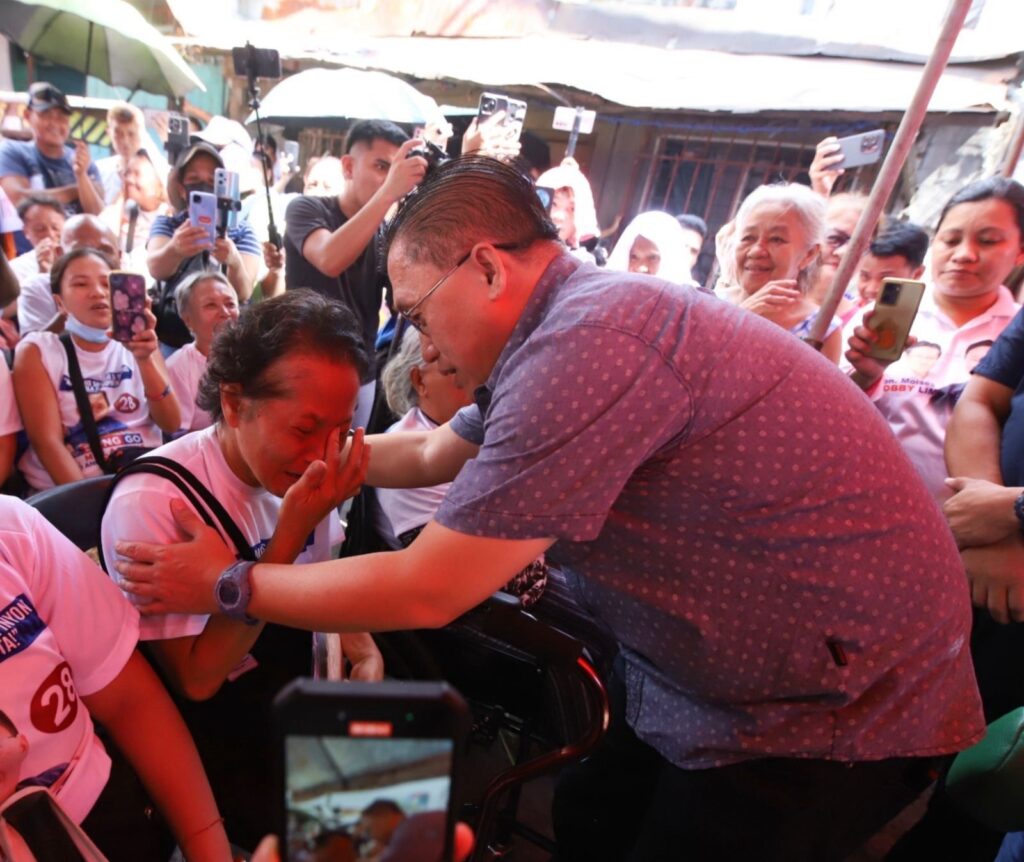
Senator Christopher “Bong” Go has filed Senate Bill No. 673, also known as the proposed “Crop Insurance Program for Small Farmers,” at the start of the 20th Congress to provide comprehensive and mandatory crop insurance coverage for small farmers, coupled with a national government subsidy, to shield them from agricultural losses caused by extreme weather, pest infestations, plant diseases, and other disasters.
Go underscored the urgent need for a more accessible, subsidized insurance program for the country’s smallholder farmers, who remain highly vulnerable to climate-induced risks and other agricultural threats.
He explained that while the Philippine Crop Insurance Corporation (PCIC) has been mandated since 1978 to implement the government’s agricultural insurance program, many farmers—particularly those in remote and underserved rural areas—remain without coverage due to limited awareness, insufficient subsidy, and challenges in accessing insurance products.
“Over the years, the government has provided subsidies to support the crop insurance program and has been shouldering shares of insurance premiums of insured farmers. However, despite these developments, the uptake of crop insurance among small farmers remains low due to limited awareness, insufficient government subsidy, and difficulties in accessing insurance products, particularly in remote and under-resourced rural areas,” Go stated.
He stressed that this lack of protection has left many smallholder farmers—who he described as “the backbone of Philippine agriculture”—bearing the brunt of typhoons, droughts, pest infestations, and other disasters.
“These events often leave them with little to no recourse, perpetuating cycles of debt and poverty,” he warned.
Go pointed out that the existing crop insurance program is mandatory only for farmers who access agricultural credit through formal loan programs, while remaining optional for self-financed farmers.
“Moreover, limited awareness and understanding of the insurance products offered by PCIC, including their benefits, processes, and terms, further hinder wider participation in the program,” he cited.
The proposed measure, if passed, seeks to make crop insurance coverage automatic for all farmers cultivating eight hectares of farmland or less. Under the bill, farmers with five hectares or below will have their premiums fully subsidized by the national government, while those with more than five but not exceeding eight hectares will receive a 50 percent subsidy.
“In light of these unpleasant circumstances faced by our small farmers, this bill seeks to develop a crop insurance program that will provide comprehensive protection for our small farmers and their crops from negative impacts of extreme weather/climate conditions, plant diseases and pest infestations, and other disasters,” Go explained.
The measure also aims to strengthen PCIC’s capacity to deliver more efficient and farmer-centered services. Go emphasized that the bill intends to improve claims processing, simplify enrollment, and enhance collaboration with local government units, cooperatives, and accredited private insurance partners.
The bill details the program’s insurance framework, including the use of the Philippine Atmospheric, Geophysical and Astronomical Services Administration (PAGASA) as the primary reference weather station for determining payout triggers, as well as the coverage of different phases of crop growth with separate triggers and payouts. Notably, a declaration of a state of calamity will not be required to trigger indemnity payments, as long as the agreed threshold reference point is breached, based on the bill.
It also proposes that the Department of Agriculture (DA), in coordination with PCIC and the Insurance Commission, formulate the program’s terms and conditions within 90 days after the law takes effect. The DA, PCIC, and the Department of Agrarian Reform, in coordination with local government units, will also be responsible for developing and annually updating a database of farmers covered by the program.
In the event of losses, insured farmers can file a written claim with the municipal agriculturist, who will forward it to PCIC for processing and payment in accordance with established terms and conditions.
By institutionalizing a stronger and more inclusive insurance system for small farmers, Go reiterated that the measure is designed to protect both livelihoods and the country’s food security.
“It also seeks to provide free crop insurance coverage for small farmers owning or cultivating five hectares of farmland or below, and a 50% insurance premium subsidy for farmers owning or cultivating more than five but not exceeding eight hectares of farmland,” he reiterated in his explanatory note, stressing the importance of timely and accessible government support for the sector.
Go has consistently championed policies that uplift the agricultural sector and promote national food security, ensuring that farmers and fisherfolk receive the financial and institutional support they need to thrive.
He is a co-author of Republic Act No. 11901, or the Agriculture, Fisheries, and Rural Development Financing Enhancement Act of 2022, which strengthens financial mechanisms and support systems to improve farmers’ and fisherfolk’s access to essential resources.
Go also co-sponsored and co-authored RA 11953, or the New Agrarian Emancipation Act, which relieves agrarian reform beneficiaries of their financial burdens by condoning loans, including interest, penalties, and surcharges—giving farmers a fresh start toward achieving economic stability.
Beyond these enacted laws, Go continues to pursue reforms that directly benefit the agricultural sector. He filed SBN 680, or the Post-harvest Facilities in Every Agricultural Municipality bill, which mandates the construction of warehouses and rice mills in rice-producing areas through the collaboration of the Department of Public Works and Highways, the Department of Agriculture, and farmer cooperatives.
He also filed SBN 681, or the Fertilizer Subsidy for Farmers bill, which provides financial assistance to help farmers reduce input costs.
“Dapat pagbutihin natin ang mga programa at serbisyo para sa ating mga kababayang Pilipino lalo na ang ating mga magsasaka. Wala tayong kakainin kung wala sila,” affirmed Mr. Malasakit in a message.
“Magtulungan at magmalasakit tayo sa isa’t isa lalo na sa mga mahihirap nating kababayan na isang kahig isang tuka. Importante na happy ang ating mga magsasaka. Sikapin nating walang magutom na Pilipino at walang maiwan sa ating pagbangon,” he added.
